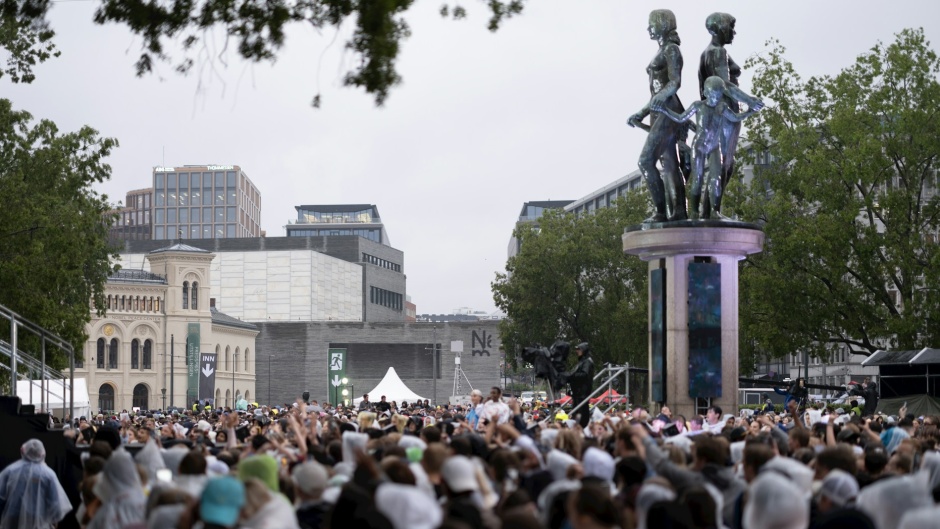Lutheran Church aligns with government in criticising Catholics and evangelicals’ defence of Christian views on sexuality and marriage
In Norway, the “divide among Christian churches follows a new line”, notes journalist Tore Hjalmar Sævik.
OSLO · 23 OCTOBER 2024 · 14:43 CET

A joint statement signed by Pentecostals, Baptists, Evangelical Lutherans and the Roman Catholic Church in Norway has once again shown how the gap between conservative and liberal Christians is only growing.
In a very concise document, 36 organisations from a wide range of Christian traditions in the Nordic country publicly expressed their belief in heterosexual marriage, their rejection of queer theory, their opposition to the promotion of transgenderism among children, and their view of surrogacy as a practice that goes against the rights of children.
The declaration, signed by church movements and mission agencies, also calls for a respectful debate in an “open-minded society where there is space for diversity of beliefs characterised by mutual respect”. They warn against the “activism” of governmental bodies which “exceed their mandate and power by attempting to pressure citizens and organisations” with certain agendas, causing a restriction of “freedom of conscience and religious freedom”.
Harsh government reaction
A journalist in Norway told Evangelical Focus that the media had not given “very much attention” to this public stance of conservative Christians.
“Generally speaking, what happens in denominations and congregations around the country rarely gets much coverage outside the Christian media. This was different some decades ago”, says Tore Hjalmar Sævik, who works for the Norwegian Christian newspaper Dagen reporting on national and international affairs.
But two influential figures in the country did respond, he explains. One was the government’s minister of culture and equality, Lubna Jaffery (of the ruling Labour party), who spoke to news agency NTB, saying: “There’s a lot in this declaration that I know hurts many people to read, especially the lack of acceptance and understanding of queer people”.
“We live in a society where we have come a long way past the discussions that the organisations are trying to bring back”, she added. Not welcoming transgender people, she added, clashed with these churches’ desire to have a respectful debate.
Jaffery said she thought there was a medical consensus on transgender issues that supported the government’s policies, insisting that her party would continue to work for people to have “safe, happy and free lives”. In 2023, the Norwegian government passed a strict conversion therapy ban which, which faced “protests not just from Christian organizations, but also professional organisations and some human right experts”, explains Sævik. “After some adjustments, it got a sweeping majority” in parliament.
The pro-LQBQTI position of the historic Lutheran church
The second powerful voice in the debate that reacted negatively to the declaration of the 36 Christian groups was the presiding bishop of the Church of Norway, Olav Fykse Tveit.
The leader of the Church to which over half of the population still belongs, said Joint Christian statement of Catholics and evangelicals was “disappointing” since it was “not a good contribution to Christian unity”.
The head of the Den Norske Kirke also denounced what he thought was “a poor use of Scripture” and an unneeded mixture of theology and medical science. Fykse Tveit was between 2010 and 2020 the general secretary of the World Council of Churches (WCC), a global movement to which most theologically liberal Protestant churches belong.
How Norway’s society sees sexuality and gender identity
But has society already taken a position on all the issues raised by the joint declaration?
Hjalmar Sævik observes that, in Norway, “the public discourse about these issues is dominated by a liberal or progressive understanding”. Especially when it comes to sexuality, “a conservative or traditional Christian position has become more marginal in the wider society”.
He points to the year 2017, when the Church of Norway first introduced a new liturgy to make space for homosexual marriages. “That is the church that the large majority of Norwegian have a relation to, if any”.
More specific issues of gender diversity and queer theories may still have parts of the population unconvinced. “There have been voices who are not Christian who have been critical of the very rapid progressive development which has happened especially the latest decade”, says the journalist.
But in general terms, celebrating Pride events and supporting the “LGBTQ communities” is something most of the population would support. “That conservative Christians issue a warning is probably not going to make a strong impression on most Norwegians, based on the development we have seen for at least 50 years”, Sævik thinks.
Not many willing to speak out
Still, looking at “more anecdotal observations”, who has worked in Dagen for 15 years, “there could probably be more popular resistance to some of these progressive policies than what is reflected in national politics”.
Many may have doubts about bioethical questions linked to LGBQTI theories. “But it seems like the prevailing understanding is that there is much to lose and little to win”. This reluctance to speak out about controversial topics may have grown after the terrorist attack against the Oslo Pride events in 2022. An Islamist killed two people and several others were injured.
Christian unity and division along new lines
In this context, the Joint Christian Declaration on ‘Diversity of Gender and Sexuality’ may have come in a critical moment.
“I think the conservative Christian organisations find it important to speak in a unified voice, with formulations they have thought through well”, says Sævik.
“That a spectrum from Pentecostals to Catholic bishops are standing together about the new statement, is all the more interesting”, he adds. “It indicates that there is a divide among Christian churches which follows a new line”.
One more year
Learn all about our #OneMoreYearEF campaign here (English).
Published in: Evangelical Focus - europe - Lutheran Church aligns with government in criticising Catholics and evangelicals’ defence of Christian views on sexuality and marriage
